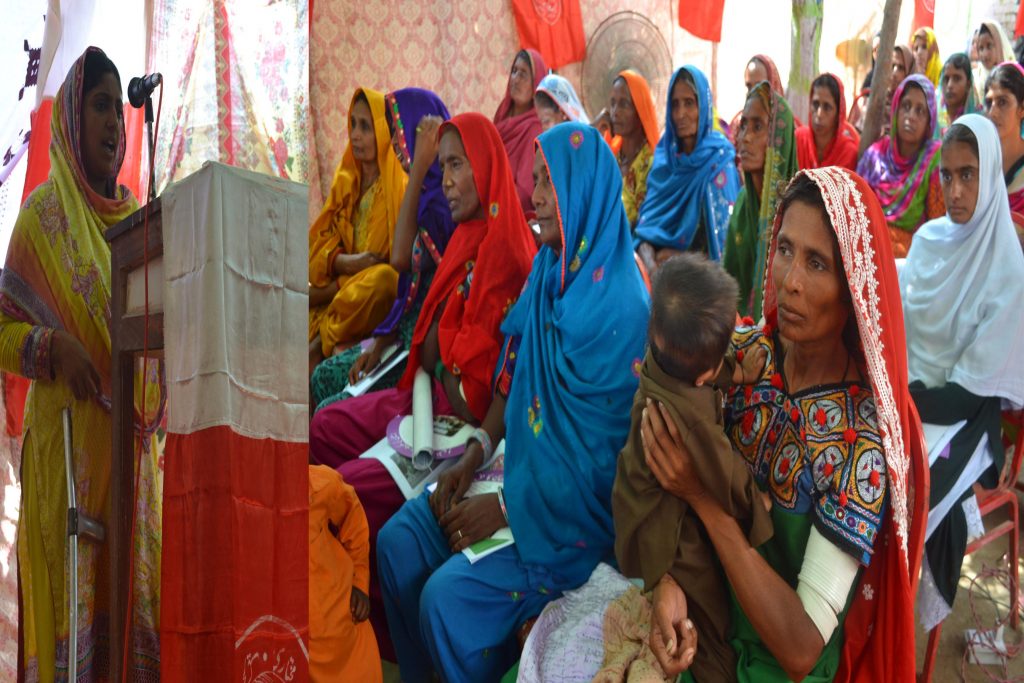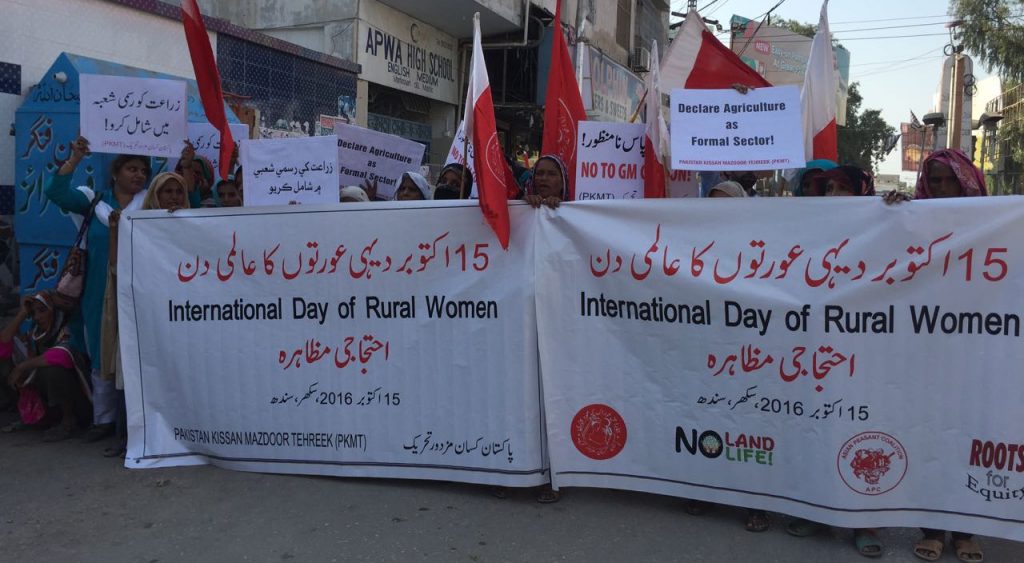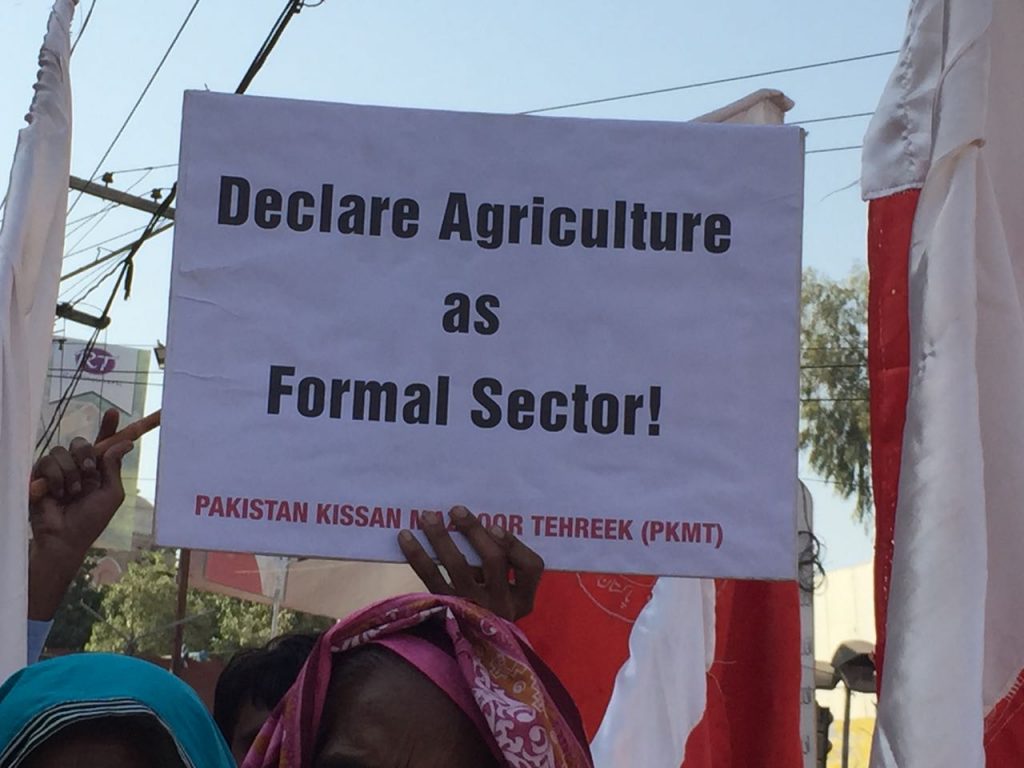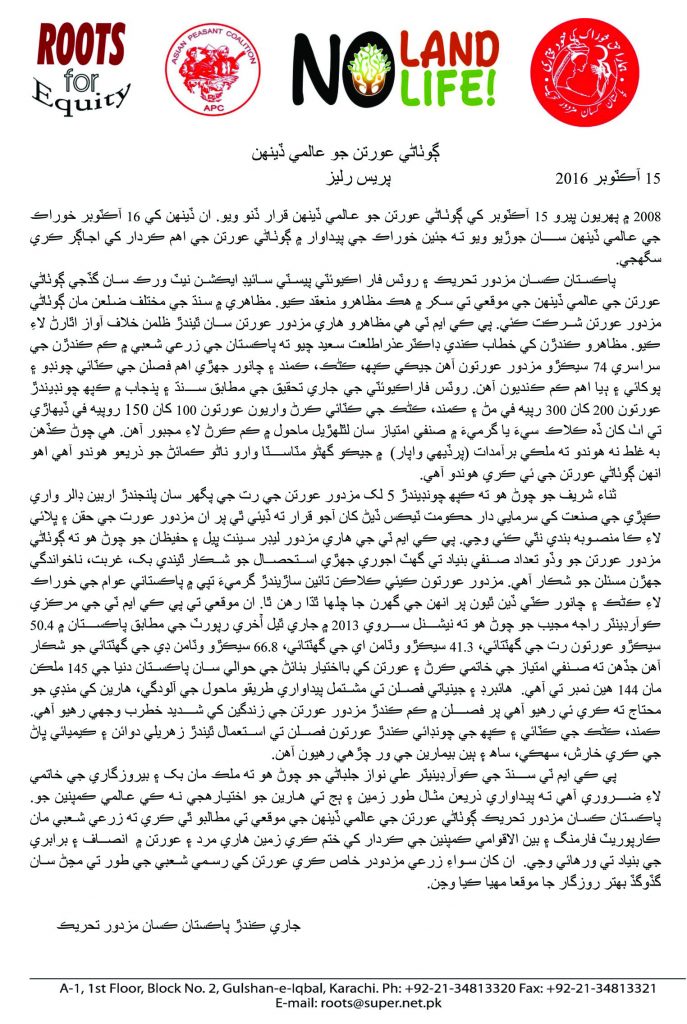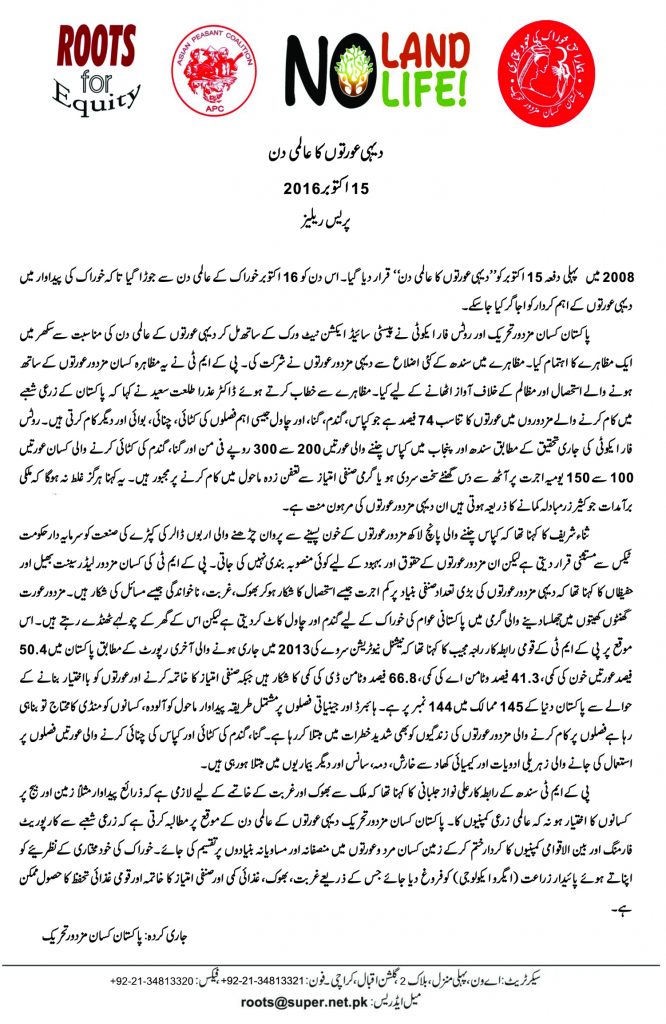Press Release
October 15th was declared as the Rural Women’s Day in 2008. The context was to declare Rural Women’s Day on the eve of the World Food Day (October 16) to emphasize the crucial role of rural women in world food production.
Pakistan Kissan Mazdoor Tehreek (PKMT) and Roots for Equity alongwith Pesticide Action Network (PAN AP) celebrated the Rural Women’s Day by organizing a rural women’s assembly in Khairpur and a protest rally in front Sukkur Press Club, Sindh. In this rally, rural women from several districts of Sindh participated.
The rally was organized to highlight and protest the exploitation and oppression perpetuated against rural women, especially those working in the fields as agriculture women workers. Addressing the rally, Dr. Azra Talat Sayeed said that women form a huge proportion of the agricultural work force. These women are sow, harvest and provide daily care ofimportant crops such as cotton, wheat, sugarcane and rice. According to an ongoing research by Roots for Equity on Women Agriculture Labor, women in Sindh and Punjab working as cotton pickers earn Rs 200 to 300 per 40 kg which generally takes more than a day. Grueling work during wheat harvest is paid in kind and does not exceed Rs 100 to150 per day. These women work 8 to 10hours a day regardless of extremes of weather. Moreover, these women are the target of gender discrimination. According to Sana Sharif, it needs to be emphasized that the backbreaking work of women is responsible for the country earning billions of rupees in foreign exchange which is especially true for the textile industry. The Pakistani government has failed to incorporate the agriculture in the formal sector leaving behind millions of men and women agriculture labor with out access to a decent livelihood.
PKMT activists, Sainth Bheel and Hafeezan highlighted the fact that exploitation of rural women has resulted in women facing higher levels of poverty, hunger and misery. Patriarchal norms and feudal control has not allowed them to access education, not for them and tragically not for their daughters. Further, women agriculture workers, who produce food for millions of homes across the country face food insecurity routinely.
Raja Mujeeb, National Coordinator, PKMT stated that according to the National Nutrition Survey, 2013, 50.4% rural women suffer from anemia, 41.3% and 66.8% have Vitamin A and Vitamin D deficiency, respectively. The survey also reported that amongst 145 countries, Pakistan was ranked 144 in the list of countries, and Gender Inequality Index of 121 of 155. He also stated that hybrid and genetically modified crops were not only polluting the farm land and making farmers subservient to the market but also creating dangerous health problems for rural women because of the use of dangerous pesticides and chemical fertilizers. It is common for rural women to have health problems such as pruritus, asthma and several other illnesses because of such chemicals.Provincial coordinator (Sindh) of PKMT, Ali Nawaz Jalbani stated that in order to eradicate poverty and hunger, important agriculture inputs such as land and seed must be the ownership of small and landless farmers, rather than the right of agricultural multinational corporations.
PKMT on this World Day of Rural Women, demands that the influence of corporate farming and multinational corporations be eliminated and land allotted to rural women through just and equitable land distribution policies. In addition, agricultural laborers, especially rural women be recognized as a formal sector a must of decent wages.

